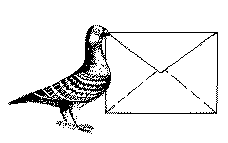
Dear Evan: I was spending a day at the beach recently, and, taking time out from reading a book, spent some time watching seagulls. I noticed that these gulls did a great deal of walking around and picking up things that they seemed to think would be edible but weren't, such as candy wrappers. They did not, in short, seem very bright. Is this where we get the word "gullible"? -- Katherine Mercurio, New York, NY.

Well, this explains the letter I received just this morning from several irate seagulls at Brighton Beach, Brooklyn, complaining about a woman who recently visited their abode. Evidently, the beachnik in question spent her sojourn there with her nose buried in the latest Jackie Collins opus, bolting Milky Ways nonstop, pausing only to attempt to trick the younger gulls into eating her discarded candy wrappers. I cannot, this being a family column, quote verbatim from the gulls' letter here, but I do suggest you take along an umbrella on your next visit to Brooklyn.
Since I am only remotely related to any seagulls myself, I shall answer your question, but first I'll let you in on an old lexicographer's secret -- "gullible" is one of the few common English words not listed in any dictionary.
I'm tempted to let that sentence stand as is, but I get enough irate reader mail already, so yes, I'm pulling your leg. "Gullible," meaning "easily tricked or deceived," is in all decent dictionaries and does indeed have a connection with "gull" the bird. Lest I inflame my avian correspondents in Brooklyn, however, I should note that most authorities feel that the "gull" in "gullible" is not a seagull, but comes from an earlier sense of the word, meaning a young bird of any species. And young birds, as you seem to have discovered, are easy to fool.
Dear Evan: I recently ran into the phrase "I'm your huckleberry" in a story about the Old West. Looking up the term in a dictionary, I found that in slang it meant "special man for the job" around 1880, but is now considered archaic. No explanation or derivation was given. As usage was traced to 1880 and Huckleberry Finn was not published until 1884 (I think), did Twain have this meaning in mind when he named his main character? -- Robert Hood, via the internet.
It's not impossible, I suppose, and the remarkable variety of connotations given the humble "huckleberry" in late 19th century America would certainly have been familiar to Twain when he was writing his novel. According to the Dictionary of American Regional English, "huckleberry" meant, as you've discovered, "the desired or suitable person" for a task, or just an all-around nice person or even "sweetheart." But "huckleberry" could also mean "a small amount or distance" or even "a negligible thing or person." In fact, Twain himself used the word in this less than flattering sense in "A Connecticut Yankee in King Arthur's Court" in 1889.
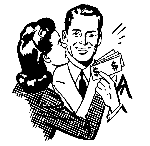 As a handy metaphor for something very small, the huckleberry also appeared in phrases such as "to bet a huckleberry to a persimmon" (a very small bet) and "a huckleberry above a persimmon" (a very small amount). But, though small, huckleberries could be special, too, as in the phrase "the only huckleberry on the bush," signifying something unique.
As a handy metaphor for something very small, the huckleberry also appeared in phrases such as "to bet a huckleberry to a persimmon" (a very small bet) and "a huckleberry above a persimmon" (a very small amount). But, though small, huckleberries could be special, too, as in the phrase "the only huckleberry on the bush," signifying something unique.
Ironically, amid all this evidence of turn-of-the-century huckleberry madness, we find evidence that the humble huckleberry actually got its name from a simple mistake. Early American colonists, upon encountering the native American berry, misidentified it as the European blueberry known as the "hurtleberry," by which name it was called until, through generations of slightly sloppy pronunciation, it became known as the "huckleberry."
Just for starters, Eagles fans are stopped at the border.
Dear Evan: A friend of mine is reading "The Cay" by Theodore Taylor and came across the word "jumbi". He believes it is related to voodoo. Who or what is a "jumbi"? Where does the word come from? Or is it like Shangri-la, created by the author to fit the story? -- Judy Levan, via the internet.
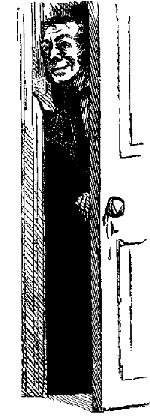 Wait just a minute here. If you're implying that Shangri-la is made up, fictional, imaginary, indeed flat-out nonexistent, then I beg to differ with you. Sure, James Hilton swore that he invented the place for his 1933 novel "Lost Horizon" about a hidden paradise deep in the Himalaya mountains, but that's just because he didn't want Tibetan real estate values to drop like a rock once his novel hit the shelves. I mean, c'mon, given a choice between New Jersey and Shangri-la, people are gonna choose Shangri-la, and then what do you end up with? New Jersey in the Himalayas, that's what. I'm just glad Hilton knew how to keep a secret.
Wait just a minute here. If you're implying that Shangri-la is made up, fictional, imaginary, indeed flat-out nonexistent, then I beg to differ with you. Sure, James Hilton swore that he invented the place for his 1933 novel "Lost Horizon" about a hidden paradise deep in the Himalaya mountains, but that's just because he didn't want Tibetan real estate values to drop like a rock once his novel hit the shelves. I mean, c'mon, given a choice between New Jersey and Shangri-la, people are gonna choose Shangri-la, and then what do you end up with? New Jersey in the Himalayas, that's what. I'm just glad Hilton knew how to keep a secret.
Meanwhile, back at your question, "jumbi" had me stumped for a while, but only as long as it took me to unearth my handy-dandy Oxford English Dictionary from beneath the pile of rubble I call my study. According to the OED, "jumbi" (also spelled "jumby" and "jumbee," among other variations) is a West Indian word for "ghost" or "evil spirit," based on the African Kongo language word "zumbi," meaning charm or fetish. A very old copy of the Funk & Wagnalls Standard Dictionary of Folklore, Mythology and Legend (a marvelous two-volume set that I inherited from my father) adds that jumbies are usually the spirits of dead people that haunt the forests of Caribbean islands, and that the term may be related to the Haitian word "zombi," or what every horror-movie aficionado knows as "zombies."
And now I hope you're satisfied, because just typing the answer to your question has given me a bad case of the willies. Thank heavens I've got the weekend to soothe my nerves at the Shangri-la Hilton.
 Nowadays, of course, we have Netscape stock.
Nowadays, of course, we have Netscape stock.
Dear Evan: A question: What is the origin of the "wooden nickel" as in the phrase, "Don't take any wooden nickels?" -- Gail Keppler, via the internet.
 First of all, I'd like to point out that we need to update this warning immediately to something more useful, such as "Don't take any Susan B. Anthony dollar coins." As someone who welcomed the advent of automated stamp machines in Post Offices (try standing on line in a New York City Post Office on a hot day sometime for an insight into my psyche, or what's left of it), I have been driven to distraction by these infernal little things. They might as well raise the postage rate to five dollars per stamp, inasmuch as I invariably spend those pesky dollar coins, received as change from the postage machines, as quarters. I'd almost rather take my change in pennies. I said "almost," Mr. Postmaster.
First of all, I'd like to point out that we need to update this warning immediately to something more useful, such as "Don't take any Susan B. Anthony dollar coins." As someone who welcomed the advent of automated stamp machines in Post Offices (try standing on line in a New York City Post Office on a hot day sometime for an insight into my psyche, or what's left of it), I have been driven to distraction by these infernal little things. They might as well raise the postage rate to five dollars per stamp, inasmuch as I invariably spend those pesky dollar coins, received as change from the postage machines, as quarters. I'd almost rather take my change in pennies. I said "almost," Mr. Postmaster.
 According to Stuart Berg Flexner in his marvelous book Listening to America, the warning not to accept any wooden nickels, meaning, in a more general sense, to be alert and not fall victim to any schemes or swindles, had its roots in a "wood" problem humorously attributed to rural consumers in mid-1800's America. There were many jokes in those days about "country bumpkins," hornswoggled by unscrupulous Yankee peddlers, who found themselves paying good money for "wooden nutmeg," "wooden cucumber seeds," and even "wooden hams." In the popular urban imagination, of course, any rube willing to buy a wooden ham would also be likely to take wooden nickels as change.
According to Stuart Berg Flexner in his marvelous book Listening to America, the warning not to accept any wooden nickels, meaning, in a more general sense, to be alert and not fall victim to any schemes or swindles, had its roots in a "wood" problem humorously attributed to rural consumers in mid-1800's America. There were many jokes in those days about "country bumpkins," hornswoggled by unscrupulous Yankee peddlers, who found themselves paying good money for "wooden nutmeg," "wooden cucumber seeds," and even "wooden hams." In the popular urban imagination, of course, any rube willing to buy a wooden ham would also be likely to take wooden nickels as change.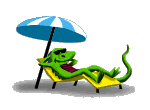
Then again, as my parents pointed out in their Morris Dictionary of Word and Phrase Origins (HarperCollins), actual wooden coins were routinely "minted" as promotional gimmicks during the numerous exhibitions so popular in 19th century America, and often were honored at "face value" by participating merchants during the run of the show. To accept a "wooden nickel" after the show had closed its gates, however, would be financial folly (especially in the days when nickels were actually worth something). So perhaps "don't take any wooden nickels" wasn't always such a frivolous admonition.
Dear Evan: Is it my imagination, or do half the people in the U.S. pronounce "realtor" as "real-uh-tor," with an extra syllable stuck in the middle? Is there a reason why this error is so common? -- Robert Moss, NY, NY.
If there is a reason, it is probably buried deep in linguistic theory. In general, we in the U.S. have always had difficulty with certain complex vowel formations. President Eisenhower, hardly an illiterate, habitually pronounced "nuclear" as "noo-cyoo-lar," a slip still widely heard today. Less forgivable is TV sportscasters' inevitable rendition of "athlete" as "ath-uh-leet."
H.L. Mencken, by the way, considered "Realtor" one of the great American euphemisms. Invented by the National Association of Real Estate Boards to lend their trade a dignity they found lacking in the common term "real estate agent," "Realtor" is a registered trademark of that organization and should only be applied to its members (and should always be capitalized).  The chutzpa of first coining and then trademarking a noun evidently rubbed Mencken the wrong way, and he took obvious delight in needling the righteous Realtors in his masterwork, The American Language. "The suggestion that 'realtor' is derived from two Spanish words," wrote Mencken, "'real,' meaning royal, and 'toro,' bull, and that it thus connotes 'royal bull,' is spurned by the bearers of the name." Mencken went on to note that the suffix "or" was undoubtedly carefully chosen, since "or" has always carried more dignity than the equivalent "er," citing "author" as weightier than "writer," and "advisor" outgunning "adviser." Such delicate considerations count, no doubt, when you are trademarking a noun. I feel obliged to inform you at this point that the approved, although perhaps not legally enforceable, pronunciation of "Realtor," according to Mencken, is "reel-tor," not "ree-al-tor," and certainly not "real-uh-tor." Caveat orator -- let the speaker beware.
The chutzpa of first coining and then trademarking a noun evidently rubbed Mencken the wrong way, and he took obvious delight in needling the righteous Realtors in his masterwork, The American Language. "The suggestion that 'realtor' is derived from two Spanish words," wrote Mencken, "'real,' meaning royal, and 'toro,' bull, and that it thus connotes 'royal bull,' is spurned by the bearers of the name." Mencken went on to note that the suffix "or" was undoubtedly carefully chosen, since "or" has always carried more dignity than the equivalent "er," citing "author" as weightier than "writer," and "advisor" outgunning "adviser." Such delicate considerations count, no doubt, when you are trademarking a noun. I feel obliged to inform you at this point that the approved, although perhaps not legally enforceable, pronunciation of "Realtor," according to Mencken, is "reel-tor," not "ree-al-tor," and certainly not "real-uh-tor." Caveat orator -- let the speaker beware.
Dear Evan: In the spirit of your recent explanation of "rule of thumb" perhaps you might like to address the following: "Call a spade a spade." A friend of mine from Britain used a variant of this expression, changing an aspect of it in the interests of humor, noting that in not mincing his words, he "calls a spade a bloody shovel." His sense was that the phrase had its origins in confusion over what to call a digging implement. I don't think the phrase is quite that innocent. My understanding is that in fact "calling a spade a spade" harkens back to Civil War America, when a person's freedom turned on whether or not the establishment considered one Black or not. Inter-racial liaisons were not uncommon, and so mulatto children were reasonably common. The White establishment was loathe to allow itself to be "diluted" with "impure blood," and so they took to "calling a 'spade' [pejorative for a Black person] a 'spade'". Is there any truth in this? -- Michael Raynor.
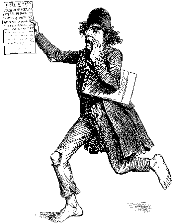 In a word, no. Although the English language, and particularly American English, contains many examples of the influence of racism on popular speech, in this particular case there is ample evidence to prove the defendant phrase not guilty. "To call a spade a spade" not only predates slavery in North America by quite a bit but harks all the way back to the Ancient Greeks, occurring in the work of, among others, the playwright Aristophanes, and is still commonly heard in modern Greek. The original phrase seems to have been "to call a fig a fig; to call a kneading trough a kneading trough," applied to someone who spoke exceedingly frankly. Evidently, when the phrase was first translated from Greek in the Renaissance, the Greek word for "trough" was confused with the Greek for "spade," and thus the modern version was born. The "spade" referred to in the phrase, incidentally, was the digging implement, and not the black character on playing cards that underlies the racial epithet.
In a word, no. Although the English language, and particularly American English, contains many examples of the influence of racism on popular speech, in this particular case there is ample evidence to prove the defendant phrase not guilty. "To call a spade a spade" not only predates slavery in North America by quite a bit but harks all the way back to the Ancient Greeks, occurring in the work of, among others, the playwright Aristophanes, and is still commonly heard in modern Greek. The original phrase seems to have been "to call a fig a fig; to call a kneading trough a kneading trough," applied to someone who spoke exceedingly frankly. Evidently, when the phrase was first translated from Greek in the Renaissance, the Greek word for "trough" was confused with the Greek for "spade," and thus the modern version was born. The "spade" referred to in the phrase, incidentally, was the digging implement, and not the black character on playing cards that underlies the racial epithet.